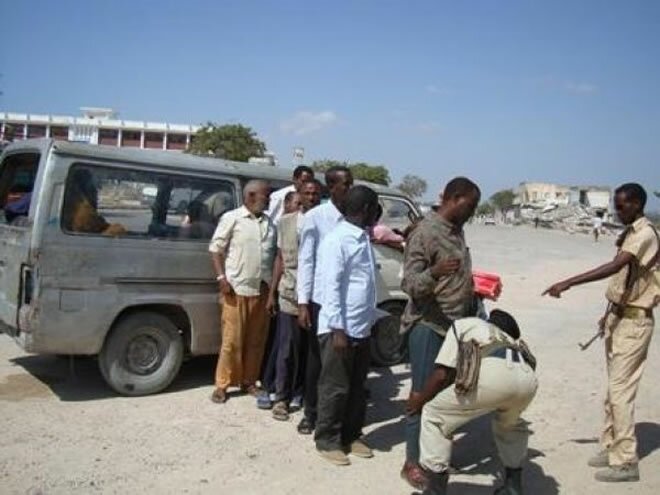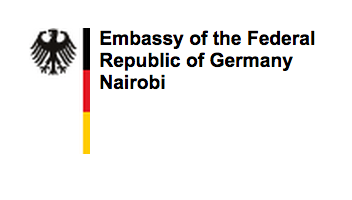Can Britain Fix Somalia? – By Abdihakim Aynte
Last week, Somalia’s donors and international partners came together in London to lay down the foundations of post-transitional government in the country. The London gathering, which brought together over 50 heads of state and hundreds of international organizations, marked a new and unprecedented level of involvement by the international community in the country.
In his opening remarks, Prime Minister David Cameron said in the clearest terms that Somalia matters to UK (and the international community at large) as young Somali minds remain at risk of being poisoned by the propaganda of Al-Shabaab, going on to export terrorism and extremism beyond Somalia’s borders. He adds “anyone who thinks this isn’t a priority…I’d say look what we’ve done in the past and look where it has got us – terrorism and mass migration”. He went on to say “we made that mistake not in the Horn of Africa, but Afghanistan”. The UK has two primary national interests in Somalia: that the country never becomes a haven for terrorists operating against UK interests and that the perpetual chaos does not precipitate another wave of mass migration to the UK.
In pursuit of these two interests it has reopened its embassy in Mogadishu – the first Western embassy to relocate there since the civil war, has hosted two major conferences on Somalia in London in the past year and pledged millions of dollars to the reconstruction of the country. More importantly, the new UNSRG is a veteran British diplomat and will spearhead one the biggest UN-integrated missions in the country. The strategic objective for this mission is, according to the resolution, to help Somalia build on political gains made over the past year and support the government’s core policy priorities.
Whilst Britain may be leading the current diplomatic surge on Somalia the analysis in Mogadishu is that this only occurred after Turkey demonstrated a willingness to get involved during the famine in 2011 following a landmark visit by Prime Minister Recep Erdogan. Plenty of countries have now reopened their embassies since then and have begun dipping their feet in back on the ground. The most notable example is the US’s recent stamp-of-recognition to the new government and the subsequent IMF, World Bank and USAID re-engagement.
On balance, Britain’s political-security imperative in the country is much greater than that of other international players and has galvanized Somalia’s pre-existing momentum. But it was Turkey’s moral-imperative which had the greatest impact in humanitarian terms and saved thousands of lives that would otherwise have been lost as a consequence of famine.
The London Conference
Conventional wisdom in Mogadishu towards the London Conference was that Somalia’s problems have now become a global concern and its future agenda are now taken seriously into major Western cities. Whilst such conferences may appear to be largely symbolic, they have a huge psychological effect on the Somali people who, over the years, have grown used to seeing neighboring cities like Addis Ababa, Nairobi and Djibouti host conferences on Somalia and, as result, have become deeply cynical towards neighbour–led initiatives.
The goal of last week’s conference was to rally behind the new government in Mogadishu and outline how the international community can be part of the country’s future. President Hassan outlined a broadly sensible blueprint for his government, despite being notably short on specifics. His three priorities are security, justice and public financial management.
But will London II live up to its promises and pledges? While there are some reasons to be hopeful, there are equally reasons to worry. Firstly, since reconciliation topped the President’s six-point pillar, the absence of members of semi-autonomous regions, chiefly Somaliland and Puntland, dashes any national and broad-based reconciliation efforts.
It is regrettable that Somaliland refused to attend, as their absence deepens the political and ideological disparity that exists between Somaliland and Somalia. Their respective leaders did, however, recently meet in Ankara after serious cajoling and behind-the-scenes diplomacy brokered by the Turkish government.
Secondly, whilst security has improved considerably, with Al-Shabaab being pushed back to more rural areas, it still mounts frequent attacks against high visibility targets throughout the country and has assassinated high profile officers working for the government. Progress is fragile and easily reversed. The recent storming of the High Court and subsequent blast in KM4 demonstrates the movement’s fast-track guerrilla hit and run strategy.
Although the current government has offered a carte blanche negotiation, it still prefers military activity over diplomacy. This military-centric approach might underpin any potential dialogue with moderate elements and low-level militants (the young poisoned minds that David Cameron worries about) who are not true believers but are either radicalized or joined for financial reasons.
Thirdly, the money that has being pledged and the enormity of the problems remain worlds apart. Somalia is coming out of 20 years of destruction, with financial and social infrastructure having almost totally collapsed. Donor-countries, for their part, should make available the promised financial assistance with no strings attached. Instead of exerting pressure and influence, these donors can establish trade partnerships in livestock, fishery, agricultural and tourism.
These challenges are not easily resolved, but having them in mind now might enable David Cameron to avoid repeating the past mistakes in Afghanistan.
Abdihakim Ainte is a Somali researcher & analyst. You can follow him on Twitter @Abdikhakim
Comments
comments
 Calendar
Calendar







































